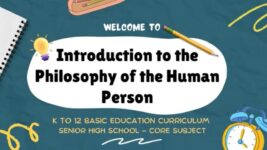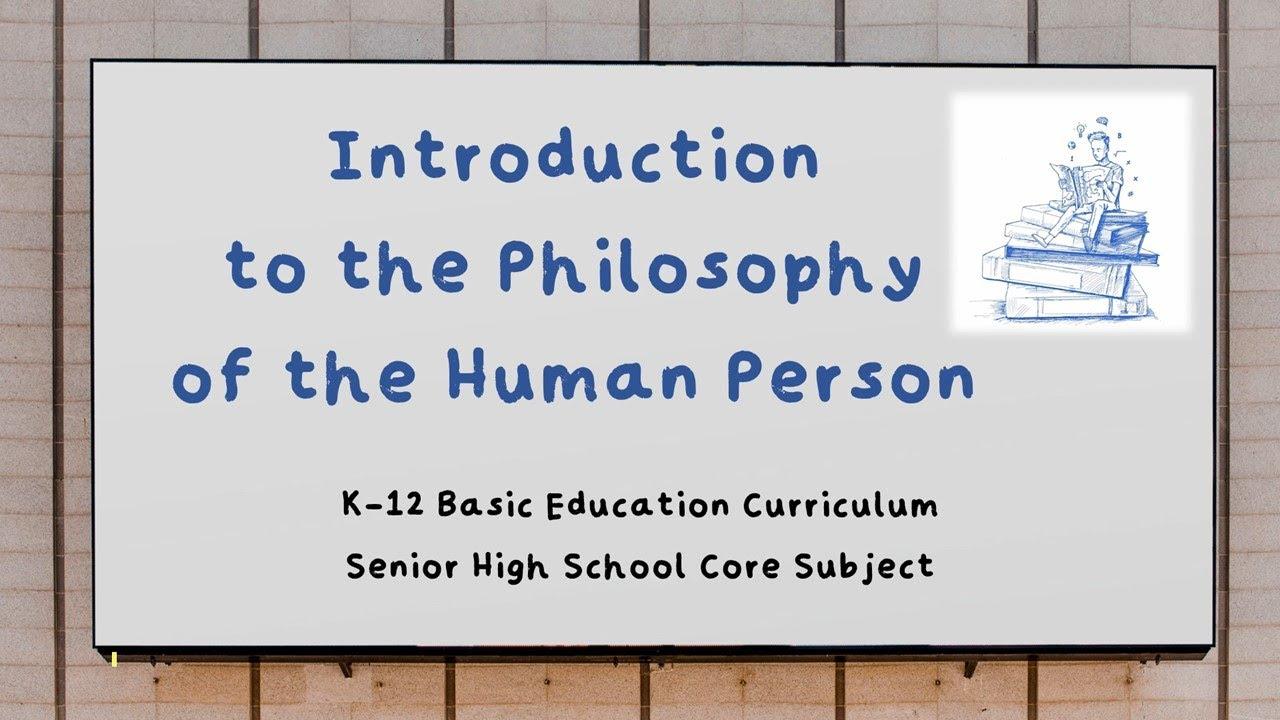
Introduction To The Philosophy Of The Human Person Curriculum Guide

Introduction To The Philosophy Of The Human Person Curriculum Guide
Philosophy, at its core, helps us explore and understand fundamental questions about existence, reality, and human nature. The
Philosophy of the Human Person curriculum guide is an essential educational framework designed to
introduce students to these profound inquiries about what it means to be human. This article serves as a comprehensive introduction
to the Philosophy of the Human Person curriculum guide, detailing its objectives, components, benefits, and practical tips for
educators and learners alike.
What is the Philosophy of the Human Person Curriculum Guide?
The Philosophy of the Human Person curriculum guide is a structured educational roadmap that introduces learners to philosophical
concepts centered around human existence, personhood, identity, consciousness, free will, morality, and the social dimensions of human life.
It emphasizes critical thinking, self-reflection, and ethical reasoning as vital skills for personal development and academic growth.
This curriculum is widely integrated into secondary and tertiary education settings, aiming to cultivate well-rounded individuals who can
thoughtfully engage with complex questions about themselves and the world around them.
Core Objectives of the Curriculum Guide
At the heart of the Philosophy of the Human Person curriculum guide are clear and purposeful goals designed to maximize learners’ understanding
and appreciation of philosophy:
- Develop Critical Thinking: Encourage students to analyze, evaluate, and synthesize philosophical arguments related to personhood.
- Foster Self-Reflection: Help learners explore their own identity, values, and purpose in life.
- Introduce Key Philosophical Themes: Cover essential topics such as consciousness, free will, morality, and human dignity.
- Apply Philosophy to Real Life: Connect abstract concepts to everyday human experiences and contemporary social issues.
- Promote Ethical Awareness: Encourage moral reasoning and responsibility in personal and community contexts.
Key Topics Covered in the Curriculum
The curriculum provides a comprehensive framework by breaking down complex philosophical themes into approachable modules:
| Topic | Description |
|---|---|
| Personhood | Explores the nature and essence of what defines a person beyond biological existence. |
| Consciousness and Self-awareness | Addresses the mind-body problem and the concepts of self-identity and awareness. |
| Free Will and Determinism | Examines human freedom, choices, and the extent of autonomy. |
| Human Dignity | Discusses the intrinsic worth of the human person in ethical and social contexts. |
| Moral Philosophy | Focuses on ethics, values, and decision-making frameworks. |
| Social and Political Philosophy | Relates philosophy to community, society, and governance. |
Benefits of Using the Curriculum Guide
The Philosophy of the Human Person curriculum guide offers multiple advantages for students, educators, and institutions:
- Enhanced Analytical Skills: Students learn to break down complex ideas and arguments effectively.
- Improved Communication: Learners articulate their thoughts clearly, both written and orally.
- Ethical Development: Promotes empathy, respect, and moral decision-making among individuals.
- Interdisciplinary Approach: Bridges philosophy with psychology, sociology, and ethics for holistic learning.
- Preparation for Advanced Studies: Lays a solid foundation for further education in philosophy, humanities, and social sciences.
Practical Tips for Teaching and Learning the Curriculum
Implementing the Philosophy of the Human Person curriculum successfully requires strategic approaches for both educators and students:
For Educators:
- Use Interactive Discussions: Facilitate open dialogues to encourage student participation and deeper understanding.
- Incorporate Case Studies: Use real-life dilemmas to connect theoretical concepts with practical applications.
- Leverage Multimedia Resources: Utilize videos, podcasts, and readings that stimulate various learning styles.
- Assign Reflective Journals: Encourage personal reflection on philosophical questions to enhance introspection.
- Encourage Critical Essays: Develop students’ abilities to argue effectively and engage with alternative viewpoints.
For Students:
- Engage Actively: Participate in class discussions and don’t hesitate to ask questions.
- Reflect Daily: Spend time contemplating personal beliefs and experiences related to the topics covered.
- Read Widely: Go beyond the curriculum by exploring classic and contemporary philosophical texts.
- Practice Writing: Work on developing clear and concise philosophical arguments.
- Collaborate: Form study groups to share insights and challenge each other’s thinking.
Case Study: Impact of the Curriculum on Student Development
Consider a secondary school that adopted the Philosophy of the Human Person curriculum guide in its Humanities program. After one academic year:
- Students demonstrated a 30% increase in critical thinking assessment scores.
- There was notable improvement in ethical reasoning during debates on social issues.
- Many students reported greater self-awareness and clarity about their personal values.
This case study highlights the transformative potential of a well-structured philosophy curriculum in nurturing thoughtful, morally conscious young adults.
Conclusion
The Introduction to the Philosophy of the Human Person Curriculum Guide acts as a beacon for educators and learners aiming to delve into the
essential questions of human existence and morality. By emphasizing critical thinking, ethical reflection, and real-world application, this curriculum fosters
a profound understanding of personhood that transcends academic study and enriches personal growth. Whether you are a teacher preparing curriculum plans or a
student embarking on philosophical exploration, this guide offers invaluable insights to navigate the complexities of what it truly means to be human.
Embracing this curriculum is a step toward cultivating a generation of thinkers equipped not only with intelligence but also with empathy and wisdom in a complex world.






